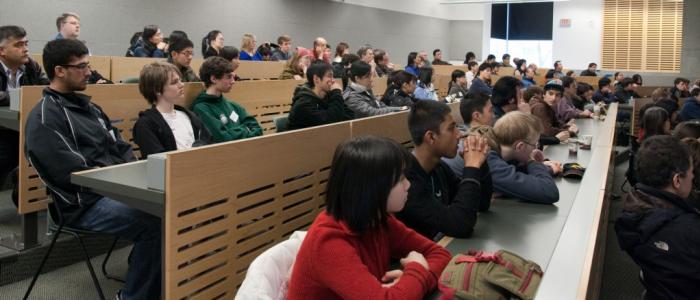
Research Opportunities
There are many ways to engage and can get exposure to research as an undergraduate student throughout the department:
- Attend a lecture in the Distinguished Lecture Series (DLS), faculty talks, international speaker talks or honours seminars. A variety of cutting-edge computer science research topics are covered every year
- Take directed studies courses
- Attend reading groups offered by various departmental labs
View DLS talks on YouTube

Computing Community Consortium: Research Opportunities and Grad School
Bigger Opportunities
Spend 16 weeks working full-time over the summer with a faculty member on a project under the NSERC Undergraduate Student Research Awards (USRA) program. Students who are considering applying to graduate school are strongly encouraged to participate.
Become a mentee with the Undergraduate Research Opportunity (URO). URO runs the Research Experience Program (REX) during the school year from September until March, with the aim of encouraging and facilitating undergraduate students into research.
Interested in working on research projects with a faculty member?
There are a variety of student-oriented or particularly student-friendly CS research venues to publish your research work. Talk to your research mentor to explore these and other discipline specific conferences: